Menopause: Onset and Symptoms Through the Years
Written by TYE Medical on Aug 9th 2022
It’s all about the hormones. As women get older changing hormones gradually usher in what we refer to as menopause. Its final stage is the cessation of your menstrual cycle but along the way it triggers a variety of uncomfortable symptoms like erratic periods, weight gain, difficulty sleeping, and hot flashes.
It’s helpful to understand the changes your body may be going through, especially if you’re age 40 or above. Even as early as 40 (and sometimes sooner), you may notice signs of perimenopause. But symptoms vary depending on your age and the stage of menopause you’re in.
Let’s take a look at menopause symptoms through the years and consider how these changes even affect your bladder and urinary health.
What Exactly Is Menopause?
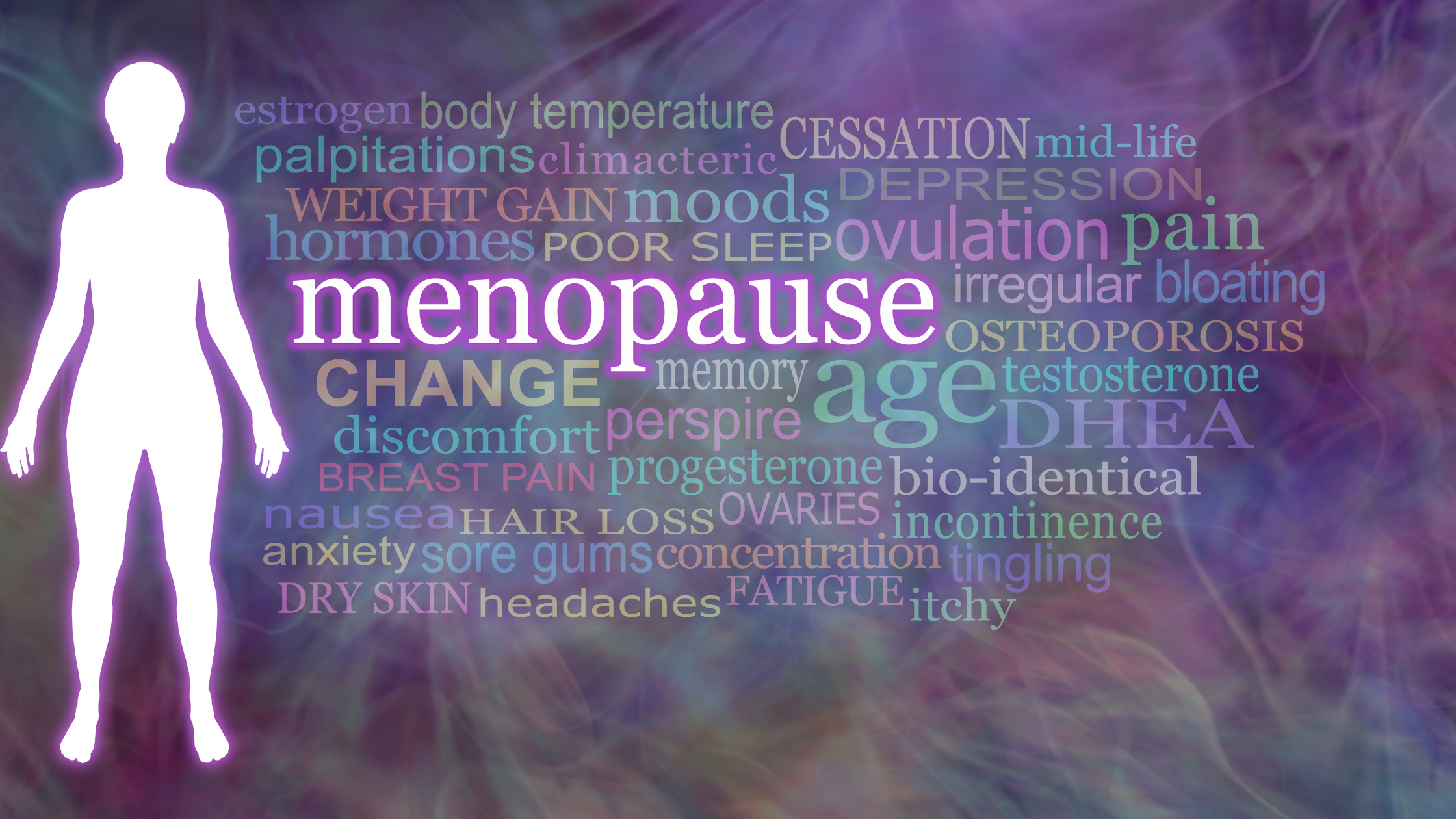
We often refer to menopause as the symptoms and hormonal changes that bring an end to a woman’s monthly period. But that’s actually not menopause: that’s perimenopause. You haven’t officially reached menopause until you’ve been without a period for 12 months straight.
Estrogen and progesterone drop significantly as you approach menopause. These hormones play a key role in many bodily functions but are also the driving force behind the menstrual cycle. By the time your period ceases and you’re in postmenopause, your body is producing very little of these two hormones.
What Is Perimenopause?
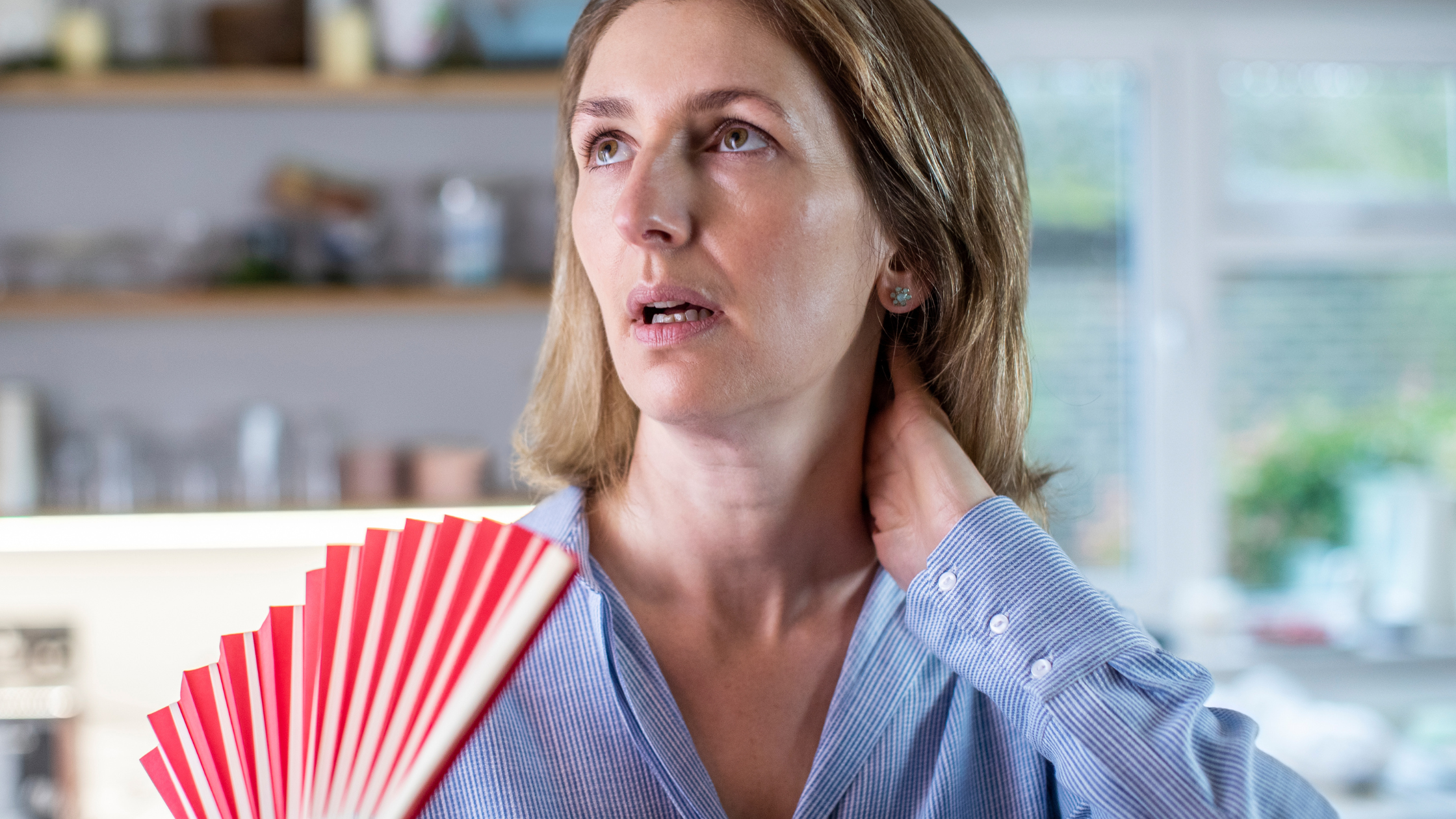
It means “around menopause”. In short, it’s the gradual reduction of the female hormones estrogen and progesterone. It’s the transitionary period that brings about those dreaded symptoms and lasts for seven to 14 years in varying degrees. For some, perimenopause can start as early as age 40 or begin as late as age 50.
When we say we’re “going through menopause” we’re really talking about perimenopause, the transitionary stage initiated and sustained by dropping hormone levels.
Menopause Symptoms Ages 40-45
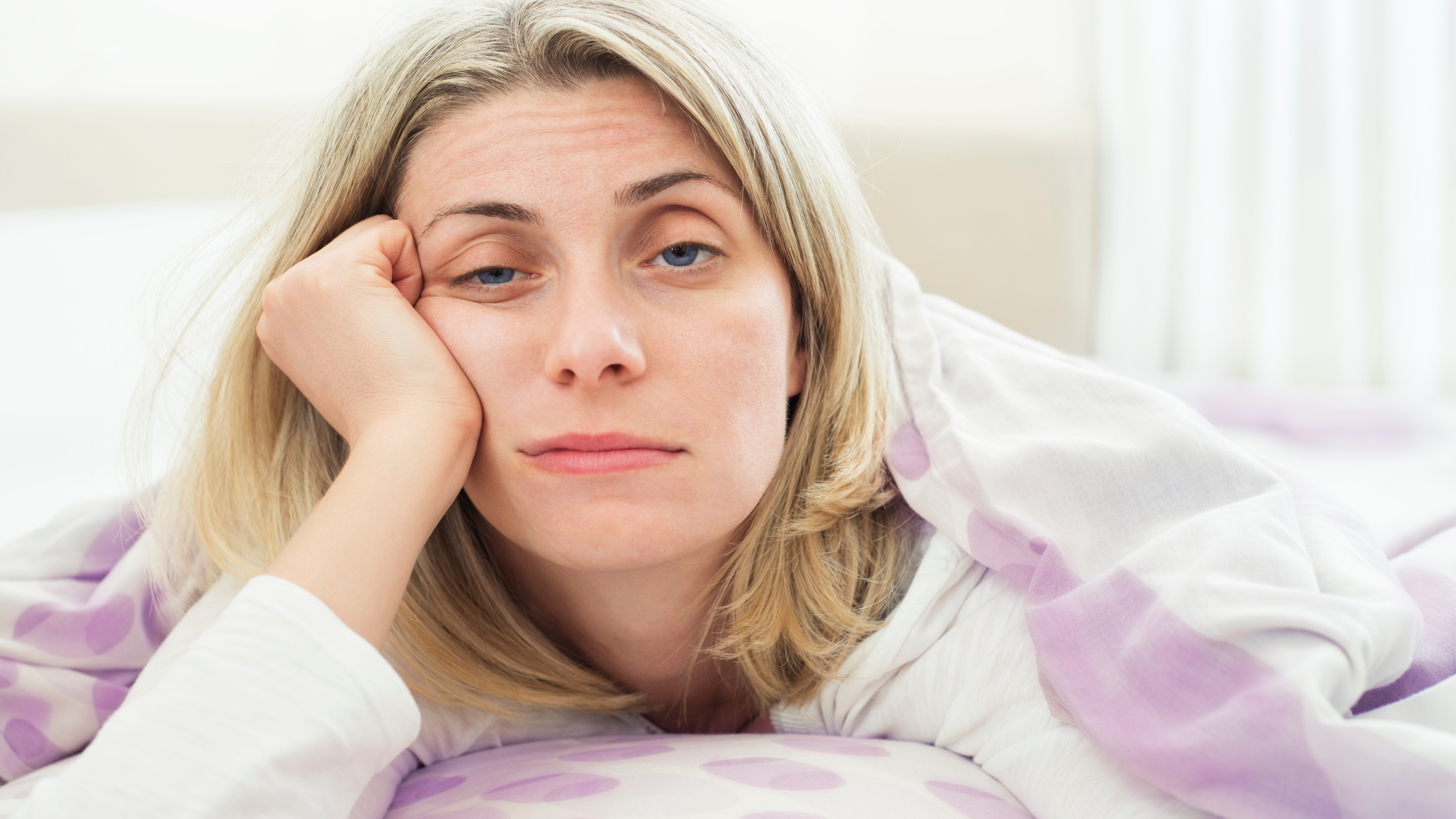
If you’re 40 and have missed a couple of periods, your thoughts may first jump to a possible pregnancy. But that’s not the only possibility. It could also be early menopause, i.e. the beginning of perimenopause. While 40 is considered early, it’s not premature. By most standards, premature menopause begins prior to age 40.
About 5% of women begin early menopause, experiencing symptoms during ages 40-45. And only about 1% enter into premature menopause in their 30s. Early menopause can happen naturally but it can be triggered by other conditions like cancer treatments, removal of your ovaries, or autoimmune diseases.
The most common symptoms of early menopause include:
- missing more than three periods in a row
- heavier or lighter than usual periods
- weight gain
- trouble sleeping
- hot flashes
- vaginal dryness
If you suspect you’re in early menopause, be sure to see a doctor to rule out possible pregnancy or another medical condition. Your doctor may recommend hormone therapy to help with the symptoms.
Ages 45-50

This is the most common age range for a woman to enter into perimenopause. This is when your ovaries begin to slow their production of estrogen and progesterone. Your menstrual cycle will become less predictable and more erratic.
In the last year or two of perimenopause, you may skip periods, or they could become lighter or heavier.
Common symptoms during these years of perimenopause include:
- hot flashes
- night sweats
- mood swings
- vaginal dryness
- hair loss
- difficulty sleeping
- changes in sex drive
- trouble concentrating
- fast heart rate
- urinary problems
Keep in mind that although it’s more difficult to get pregnant during perimenopause, it’s not impossible. If you want to prevent pregnancy, you will still need to use contraception during these years.
Ages 50-55
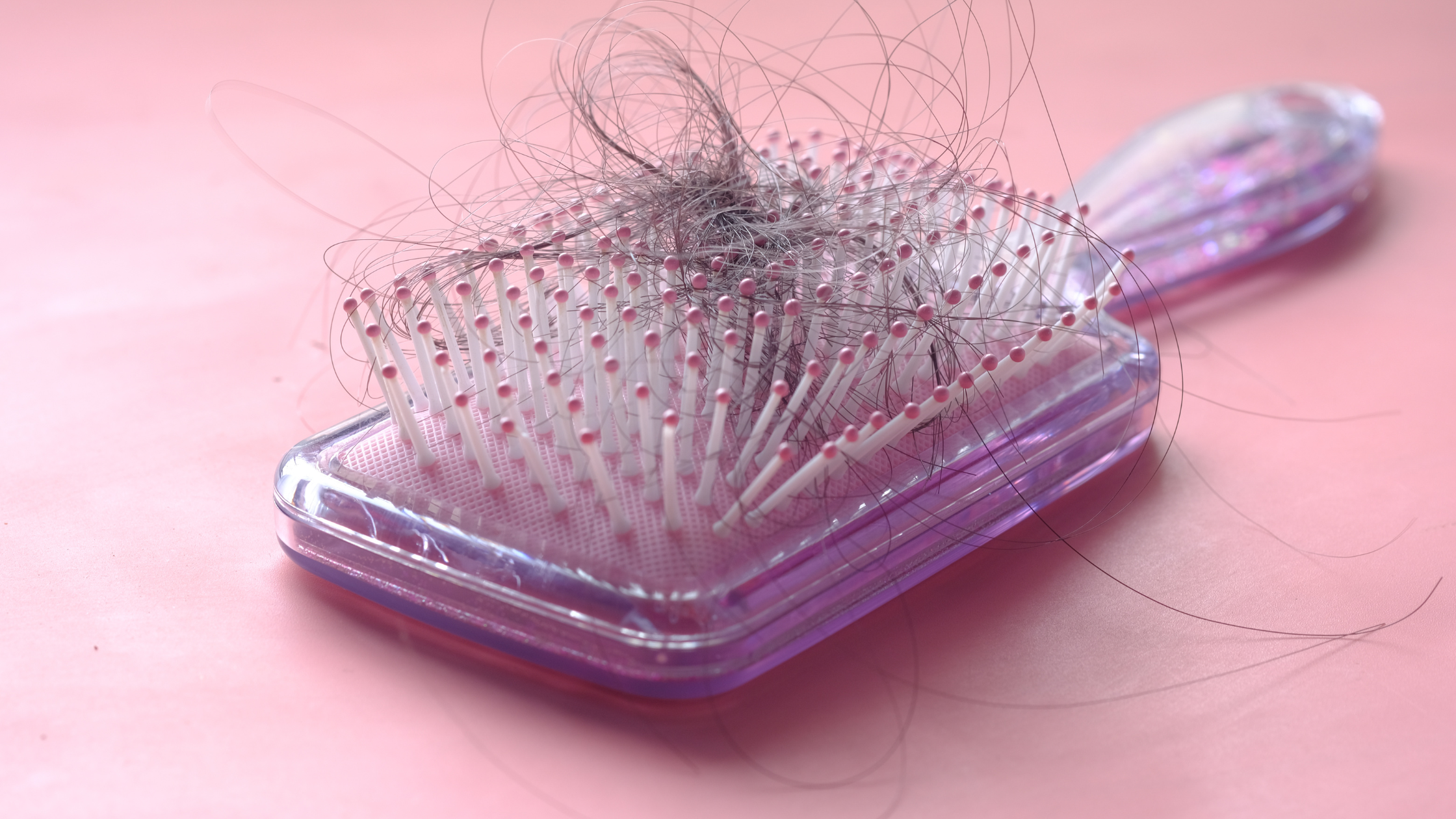
If you’re in your early 50s, chances are you’re either transitioning into the final stage of menopause or are already there. This is when your ovaries have stopped releasing eggs or making much estrogen. The transition to this phase likely took several years and you’re probably still experiencing symptoms like vaginal dryness, hot flashes, and sleep issues.
If your symptoms are affecting your daily life too much or limiting your activities, you may want to talk with your doctor about hormone therapy treatments that can alleviate these symptoms.
Menopause Symptoms Ages 55-60
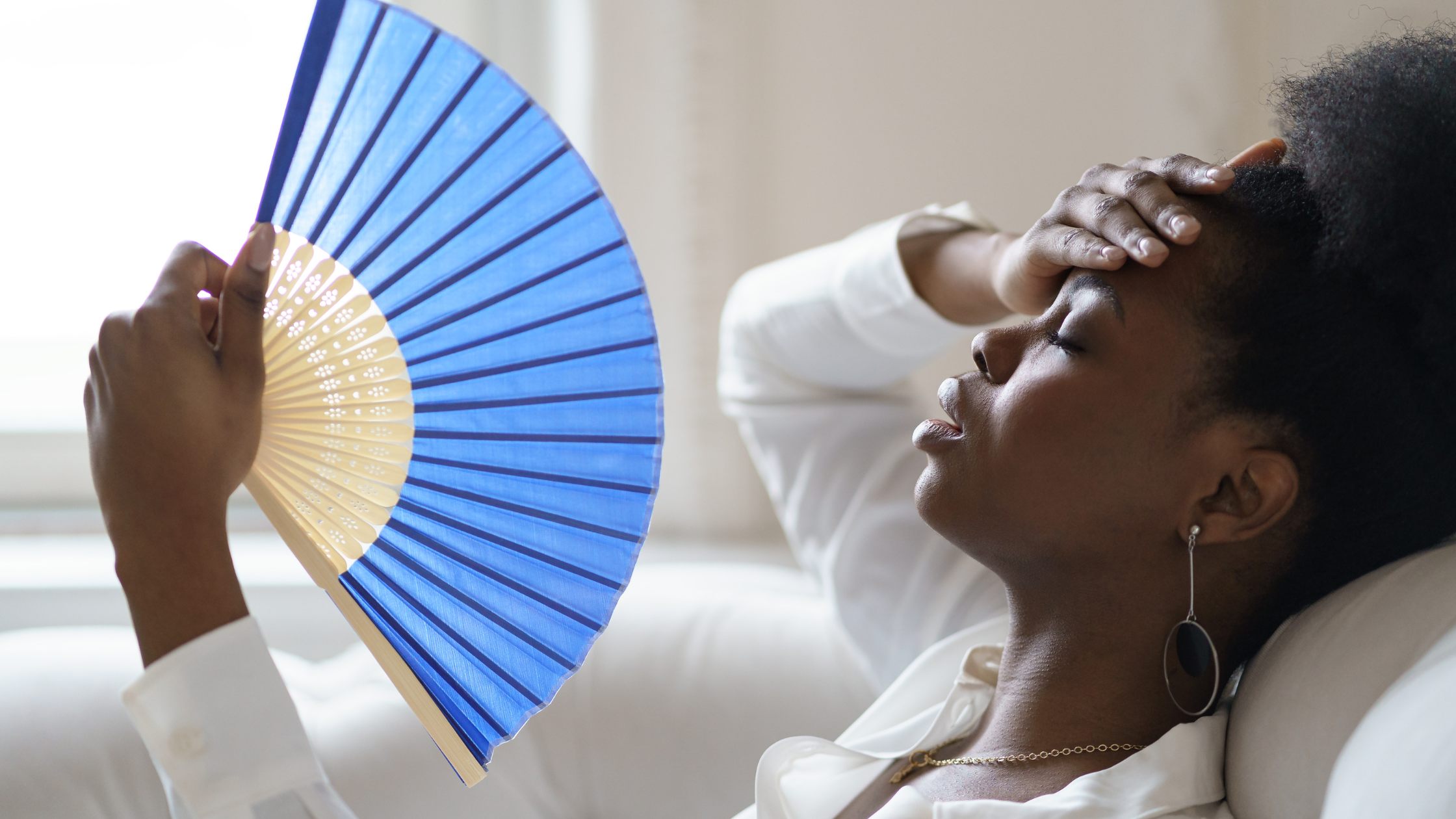
By this age, it’s likely that a full year has passed since your last period which ushers in the postmenopausal stage. But what you may not realize is that you could still have some of the same symptoms as during perimenopause or menopause, symptoms like:
- hot flashes
- difficulty sleeping
- night sweats
- mood changes
- vaginal dryness
- irritability and other mood changes
- urinary problems
About 40% of women still get hot flashes after menopause.
During the postmenopausal stage, you’ll be at higher risk for developing heart disease. This is because estrogen, which is now produced in very small quantities, plays an important role in cardiovascular health.
Ages 60-65

But not everyone has reached a postmenopausal stage by age 60. It’s possible for menopause to start “late,” although it occurs in a small percentage of women.
But making the transition later in life can be a good thing and has its benefits. Research links late menopause to a lower risk of:
- Heart attack
- Heart disease
- Osteoporosis
- Stroke
You may also live longer because estrogen protects your heart and bones.
You can still have hot flashes between ages 60 and 65 but they are usually infrequent and therefore not so bothersome. But if your symptoms are continuing to bother you at this age, you can talk to your doctor about hormone replacement therapy or other treatments.
Natural Remedies for Menopause Symptoms
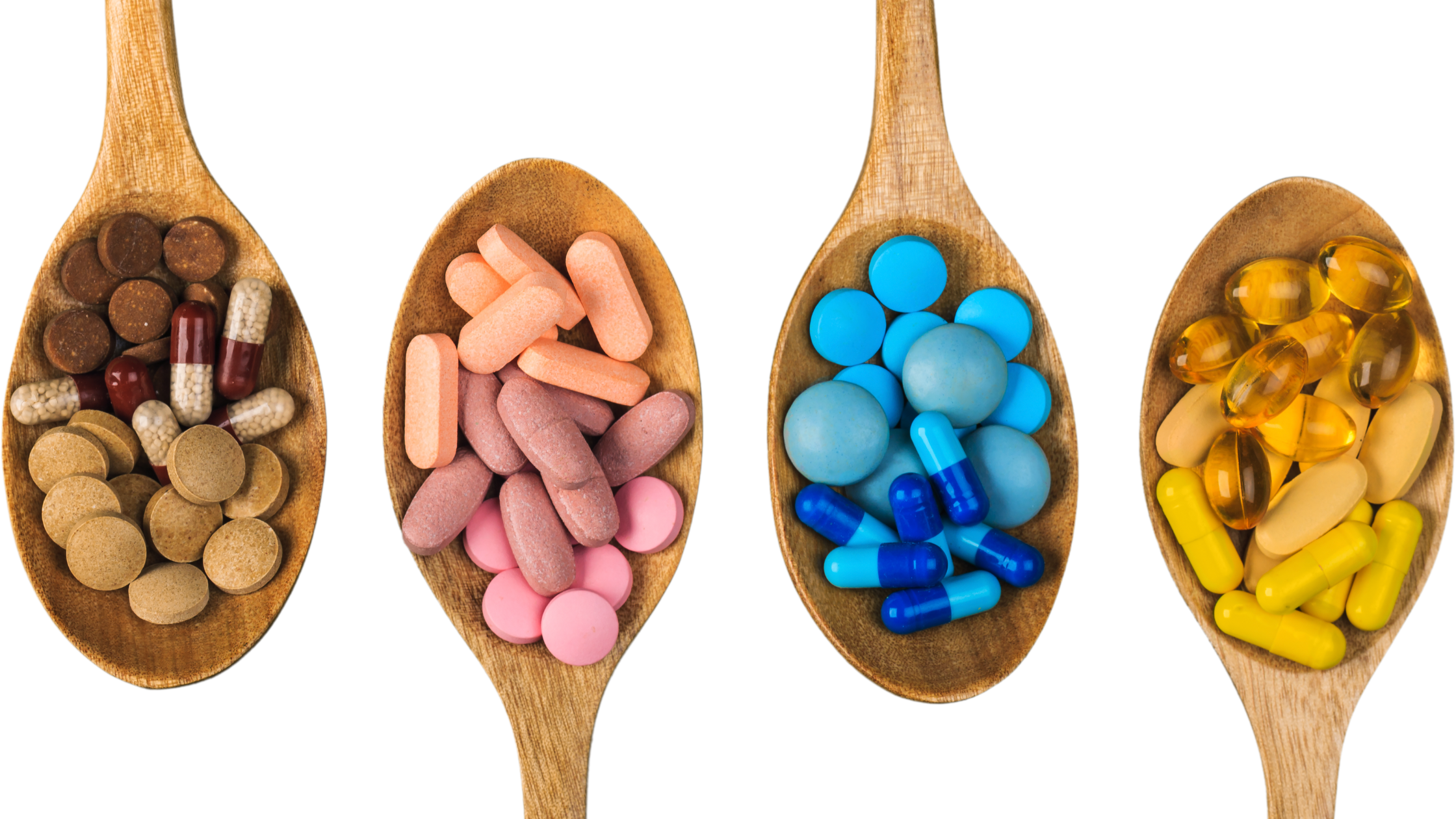
Hormone therapy isn’t an option for many women because it puts you at higher risk for certain types of cancers, especially breast cancer. But it may be helpful to try natural supplements known to combat symptoms during the menopause transition. Discuss your use of supplements with your doctor, especially if you have other conditions.
1. Black cohosh
This is a centuries-old remedy that can reduce menopause symptoms like hot flashes and night sweats. It’s even been shown in some studies to alleviate depression and improve your mood because it boosts serotonin levels.
2. Omega 3s
Omega-3 fatty acids may help relive mental effects and depressive symptoms associated with perimenopause and menopause. And as a bonus, it also reduces joint pain and protects your bone and heart health.
3. Magnesium
Try magnesium if you want to curb anxiety and sleep difficulties due to hormone imbalances. Most women don’t consume enough magnesium in their diets, so you may be surprised at the positive effects when you begin taking a supplement. Magnesium also helps reduce blood pressure, improve heart health, and combat osteoporosis. It can even relieve constipation.
4. Magnolia Bark
This remedy is rooted in Chinese medicine and has been used for thousands of years to aid women with menopause symptoms. It’s made from a blend of the bark, leaves, and flowers of the hou po magnolia tree. According to current research, it’s effective for reducing hot flashes, insomnia, depression, anxiety, vaginal dryness, irritability, and loss of libido, all of which are associated with menopause.
5. Red Clover
Red clover is like a natural hormone replacement because it acts like a weaker version of estrogens in your body. It can help even out erratic estrogen that occurs during perimenopause and relieve low-estrogen symptoms like anxiety, depression, low libido, fatigue, and sleep troubles. Similarly, it can help relieve the symptoms of PMS (premenstrual syndrome).
6. Wild Yam
You may also need some progesterone boost. Wild yam, in supplement form, is structurally bioidentical to progesterone. As you raise levels of this hormone, it offsets estrogen and helps prevent estrogen dominance and its related symptoms like low libido and hot flashes. It’s specifically helpful for hair loss attributed to perimenopause and menopause.
7. Chastetree Berry
This helps elevate progesterone levels when your estrogen levels still remain high. It will restore ovulation and progesterone production until your body begins to fall in estrogen and stops your cycle. This can alleviate symptoms like breast tenderness, cramping, bloating, and food cravings. It brings estrogen and progesterone into balance to prevent estrogen dominance and its related symptoms.
8. Ashwagandha
This powerful herb is very effective for stress and anxiety relief during menopause. It’s an adaptogen that positively affects the adrenal glands and can even boost a sluggish thyroid. Many find it effective for counteracting depression.
How Menopause Affects Your Bladder
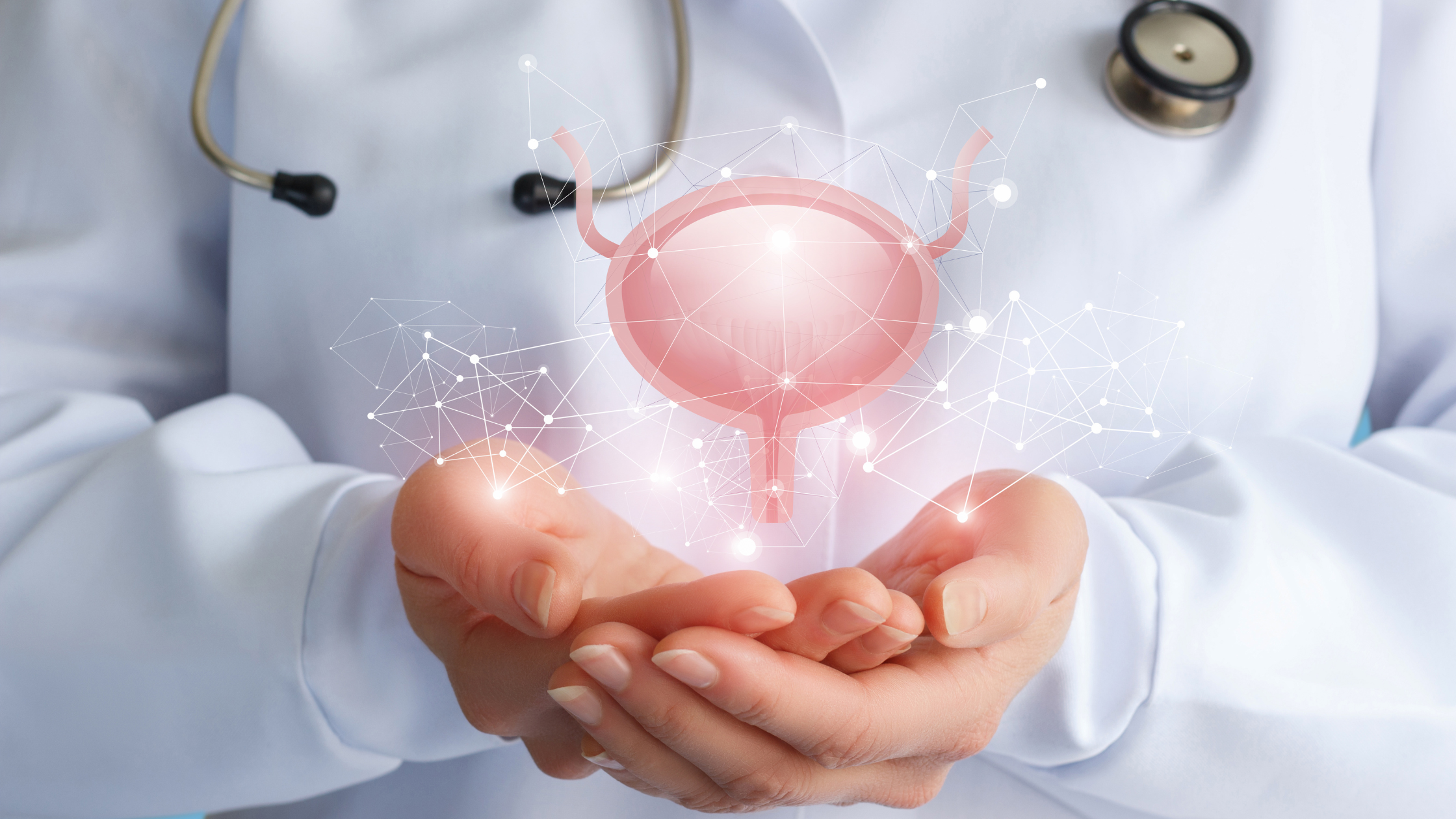
If hot flashes and mood swings weren’t enough to deal with, you may also have to manage bladder leaks during your transition to menopause. While there are several factors that can contribute to urinary incontinence, a drop in estrogen is a common cause.
Estrogen helps you maintain strong and elastic muscle tissue around the bladder, pelvic floor, and urethra. It even allows your bladder lining to detect the optimal time for emptying. As estrogen drops, the surrounding muscles become weaker and less supportive, promoting urine leaks. And as falling estrogen makes your bladder lining more sensitive, you may experience frequent urination, also known as menopausal overactive bladder.
Incontinence during perimenopause and menopause is usually a type of stress incontinence. Since your bladder and pelvic muscles are weaker, the urinary sphincter muscles can’t tighten or retain urine like they used. A cough, sneeze, or jarring activity can trigger a leak.
For effective, premium incontinence products, shop our online store. We offer free and discreet shipping on every order.


